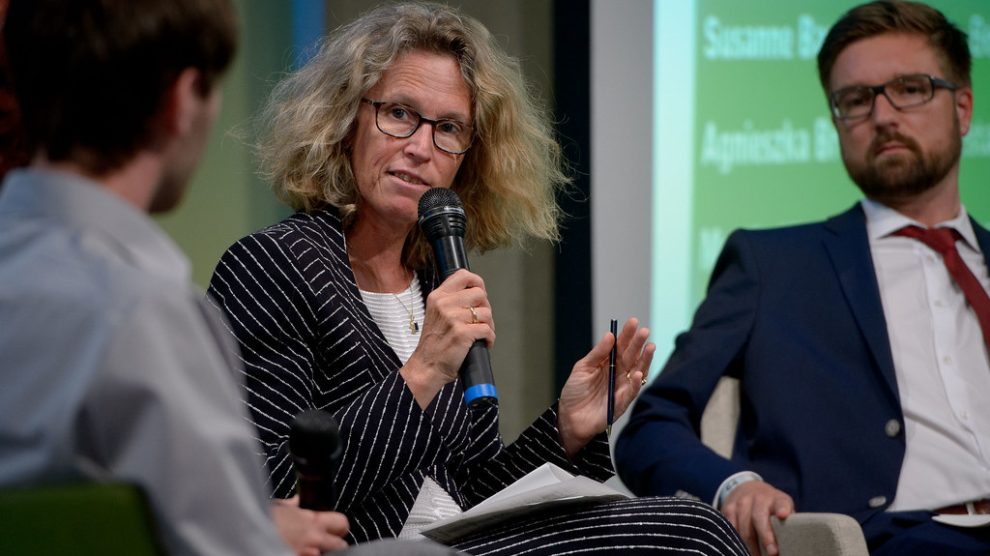Berlin and Rome move closer. In early June, German Chancellor Olaf Scholz touched down in Rome for an official State visit, meeting Italian Prime Minister Giorgia Meloni and discussing shared dossiers – economic ties, migration, strategic interest and so forth. The two also announced they had reached an understanding on the final version of the upcoming Action Plan between Italy and Germany, designed to foster bilateral relations and the countries’ coordination in the European and international spheres.
- More recently, Germany’s Secretary of State Susanne Baumann also visited Rome and met with Foreign Undersecretary Maria Tripodi. And while she was in the Eternal City, our sister website interviewed her to delve deeper in the most significant shared dossiers. Here are some excerpts.
Focus on: the Action Plan. While speaking to Formiche.net, Secretary Baumann highlighted Rome and Berlin’s “long common history” and “numerous partnerships and forms of friendship,” which encompass human links, culture, education, science and twinnings – as well as the “closely interconnected” economies, which “together form the industrial centre of Europe.” Given all this, she argued, it’s “logical to now enter into a political agreement” to “deepen our cooperation in all areas.”
- These fields of collaboration extend to “a common European migration policy, security policy issues in the Mediterranean and the Western Balkans” and “defence and armament cooperation or civil protection.”
- Both Italy and Germany are in favour of establishing qualified majority voting in the foreign and security policy of the European Union, she added, so as to “increase the effectiveness and speed of decision-making in European foreign policy to strengthen Europe as a global player.”
- The countries work closely together bilaterally, she said, in the EU, in NATO and in the run-up to Italy’s G7 presidency in 2024.
- The Action Plan will also aim to “advance the transition to a zero-emission society. As major industrial nations we can, indeed we must, demonstrate that there is no contradiction between climate protection, diversified energy policy and economic development.”
Focus on: China. Both Berlin and Rome are in the process of revisiting their ties with Beijing, as geopolitical developments and great-power rivalry reshapes relations and dangers. When asked about this, Secretary Baumann told our sister website that the Federal Government’s goal “is to shape our relationship with China in such a way that on the one hand Europe preserves and expands its room for manoeuvre politically and economically, and on the other hand China does not exploit the economic relationship for its own political gain.”
- That translates not in decoupling, she said, but de-risking – “an important thread in the management of supply chains in which China is involved” and also the subject of the recent trilateral ministerial meeting between France, Germany and Italy, where the three countries agreed on close cooperation for a sustainable supply of critical raw materials.
- Still, she stressed the importance of maintaining open channels with China – both to “avoid misunderstanding” and cooperating on such fields as the fight against climate change, greening industrial processes, accelerating the energy and mobility transition and strengthening the circular economy.
Focus on: the Stability Pact. That’s one issue that has historically divided Italy and Germany, with the former pushing for more expansive policies and the latter preaching a line of fiscal rigour. That latter position is now minoritarian within the EU, as more countries accept the need to boost certain strategic industries (such as greentech) to remain competitive on the global stage. The issue is currently being discussed at the European Council summit.
- Germany, explained Secretary Baumann, is in favour of “credible regulation that promotes growth and employment, supports investments in the ecological transition and at the same time ensures the debt sustainability of the member States.”
- To this end, she added, the EU needs a “rule-based system that applies equally to all” and “common numerical criteria and safeguards that create transparency.” Finally, she stressed the need for “multilateral surveillance that guarantees the participation and equal treatment of all member States and thus the fair and transparent application of the rules.”




